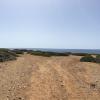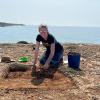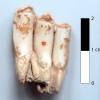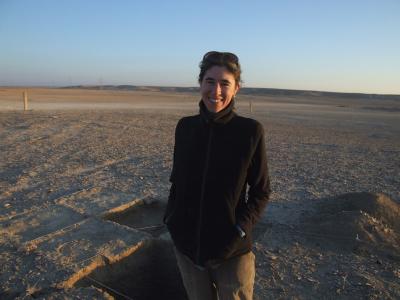Studying the Pottery from an Open-Air Sanctuary at Anavlochos, Crete
An open-air sanctuary used between the Protogeometric and the Classical periods (roughly 1000 to 400 BCE) was recently identified on the western part of the summit of the Anavlochos massif in East Crete. The sanctuary was first located in 2016 by the Anavlochos Project, which is directed by Florence Gaignerot-Driessen (University of Cincinnati) and operates under the auspices of the École française d’Athènes and with the permission of the Hellenic Ministry of Culture and Sports. It was excavated in 2017 and 2018.













